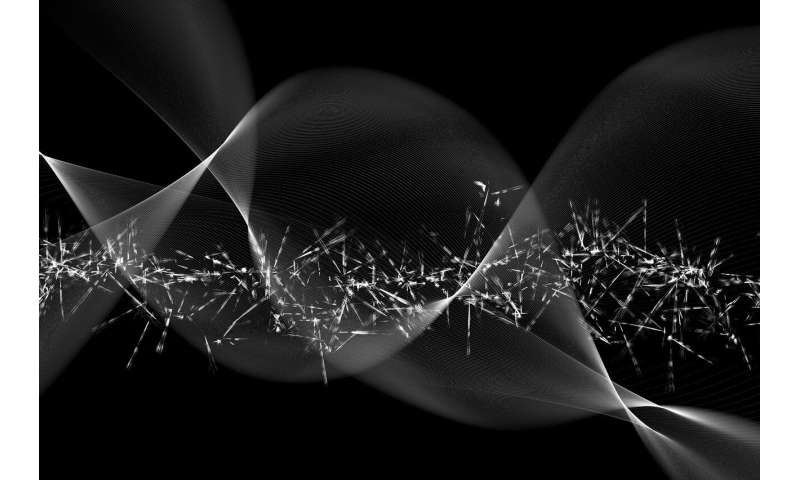#Physicists develop a new theory for Bose-Einstein condensates
“#Physicists develop a new theory for Bose-Einstein condensates”

Bose-Einstein condensates are often described as the fifth state of matter: At extremely low temperatures, gas atoms behave like a single particle. The exact properties of these systems are notoriously difficult to study. In the journal Physical Review Letters, physicists from Martin Luther University Halle-Wittenberg (MLU) and Ludwig Maximilian University Munich have proposed a new theory to describe these quantum systems more effectively and comprehensively.
Research into the exotic state of matter dates back to Albert Einstein, who predicted the theoretical existence of Bose-Einstein condensates in 1924. “Many attempts were made to prove their existence experimentally,” says Dr. Carlos Benavides-Riveros from the Institute of Physics at MLU. Finally, in 1995, researchers in the U.S. succeeded in producing the condensates in experiments. In 2001 they received the Nobel Prize for Physics for their work. Since then, physicists around the world have been working on ways to better define and describe these systems that would enable their behavior to be more accurately predicted.
This normally requires extremely complex equations and models. “In quantum mechanics, the Schrödinger equation is used to describe systems with many interacting particles. But because the number of degrees of freedom increases exponentially, this equation is not easy to solve. This is the so-called many-body problem and finding a solution to this problem is one of the major challenges of theoretical and computational physics today,” explains Benavides-Riveros. The working group at MLU is now proposing a method that is comparatively simple. “One of our key insights is that the particles in the condensate interact only in pairs,” says co-author Jakob Wolff from MLU. This enables these systems to be described using much simpler and more established methods, like those used in electronic quantum systems.
“Our theory is in principle exact and can be applied to different physical regimes and scenarios, for example strongly interacting ultracold atoms. And it looks like it will be also a promising way to describe superconducting materials,” concludes Jakob Wolff.
More information:
Carlos L. Benavides-Riveros et al, Reduced Density Matrix Functional Theory for Bosons, Physical Review Letters (2020). DOI: 10.1103/PhysRevLett.124.180603
Provided by
Martin-Luther-Universität Halle-Wittenberg
Physicists develop a new theory for Bose-Einstein condensates (2020, June 17)
retrieved 17 June 2020
from https://phys.org/news/2020-06-physicists-theory-bose-einstein-condensates.html
This document is subject to copyright. Apart from any fair dealing for the purpose of private study or research, no
part may be reproduced without the written permission. The content is provided for information purposes only.
If you want to read more Like this articles, you can visit our Science category.
if you want to watch Movies or Tv Shows go to Dizi.BuradaBiliyorum.Com for forums sites go to Forum.BuradaBiliyorum.Com


